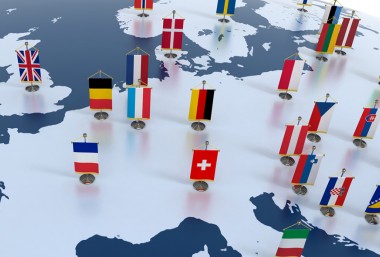In UsedSoft v Oracle the Court of Justice for the European Union (CJEU) decided:
- Oracle's software licence was actually a contract of sale
- the downloading of the software from Oracle's website by the licensee (now considered a purchaser) exhausted Oracle's right under copyright, to prohibit distribution of the copy that came into the possession of the licensee.
The outcome of these findings was that Oracle software delivered by download could be resold by the 'licensee'. The Oracle licence was a proprietary licence where such things matter, but could the reasoning used by the CJEU in the UsedSoft judgment impact disadvantageously on free and open source software licences?
Take the various versions of the GNU General Public Licence as examples, including of course the European versions such as EUPL and CeCILL which include limited warranties. First, the licence as such is granted for the full term of copyright - life of last surviving author plus 70 years - long enough in itself, and the licence also envisages software copies being transferred in perpetuity. Second, licensees are given the right to charge for each copy of the modified (or unmodified) software they distribute and of course downstream recipients in such circumstances will make payment for their copy. As the Free Software Foundation says, 'free' as in 'free speech', not as in 'free beer', although in practice much software under the GPL is distributed free of charge.
Applying the reasoning the CJEU used in UsedSoft, any software copies distributed for payment under the GPL will be 'sales'. The CJEU, somewhat simplistically, only used the stipulated duration of the licence and transfer of ownership in the downloaded copies as tests to determine that Oracle's licence was in fact a sale thereby allowing the Court to ignore the express terms of the licence agreement.
This creates two problems for free and open source software licensing. The copy left obligations in such licences, namely that further distribution of modified (or unmodified) software must itself be made under the GPL (the viral effect) and that source code must be made available can be ignored by the courts of Europe because these obligations are incompatible with a sale transaction. More ominously, when a licence is judged to be a sale the terms allowing the 'licensee' to modify and distribute the modified software must also be disregarded for the same reason. Modifying software acquired in a sale transaction will be a breach of copyright without a licence.
But it is fundamental to the free software philosophy that recipients must be able to modify the software and distribute that too if they wish. This mandates a licence (under copyright), but a licence deemed by a court to be a sale contract does not and cannot grant such rights any more than does a sale of a book.
The failure of the CJEU to properly recognise the status of a software licence agreement and give effect to its terms is lamentable in itself, but more significantly for free and open source licences is the failure to appreciate that the terms of a licence may grant more rights to a user than occurs on a sale. How does the UsedSoft logic square with the prior decisions of German courts, which have upheld and enforced the terms of free and open source software licences?


